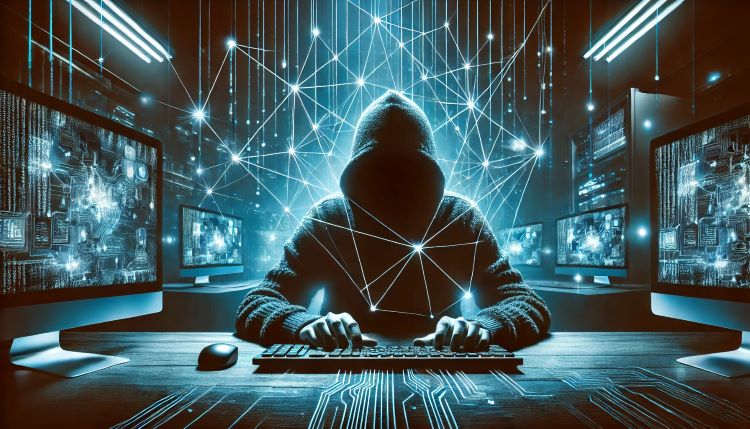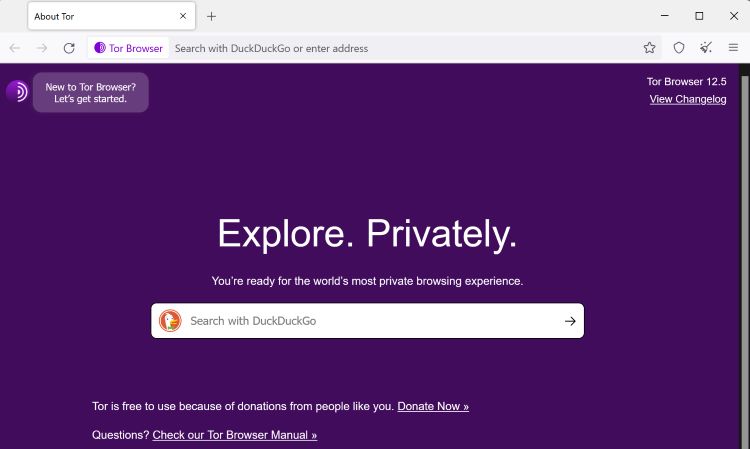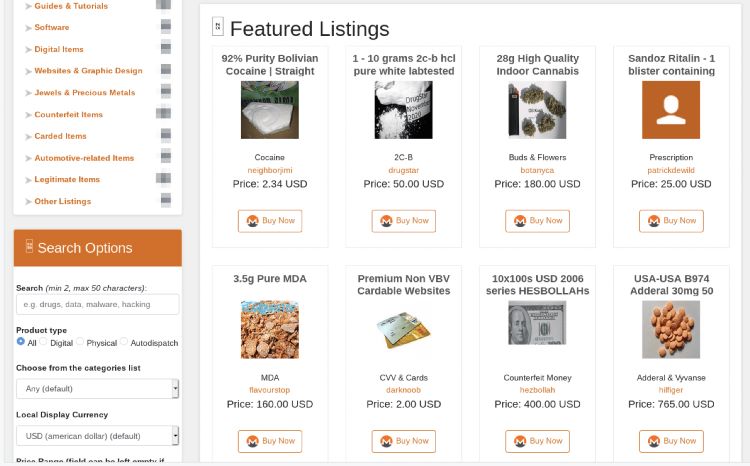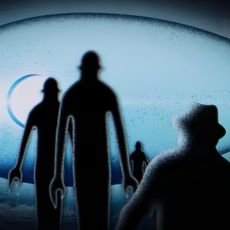The internet is vast, and not all of it is accessible through regular search engines like Google, Bing, or Yahoo. While most of us browse the surface web daily, there is another part of the internet known as the “Deep Web” and “Dark Web.” The Dark Web, in particular, has a reputation for being a dangerous and illegal part of the internet.

This article will explore what the Dark Web is, how it differs from the Deep Web, why it’s considered unsafe, and provide tips on how to stay safe if you ever need to access it.
What is the Dark Web?
The Dark Web is a small section of the Deep Web, which is the part of the internet that is not indexed by traditional search engines. It is intentionally hidden and can only be accessed using special software or configurations. The most common way to access the Dark Web is through a browser called Tor (The Onion Router).

The Dark Web is often associated with illegal activities due to the anonymity it offers. It allows users to browse the internet without revealing their IP addresses, making it difficult for authorities or anyone else to track their online activities. This anonymity has attracted various criminal activities, including the sale of illegal drugs, weapons, stolen data, and other illicit services.
However, it’s essential to understand that not everything on the Dark Web is illegal. Some journalists, activists, and individuals living under oppressive regimes use the Dark Web to communicate securely and anonymously, protecting their privacy and freedom of speech.
Difference Between the Deep Web and the Dark Web
Deep Web: The Deep Web refers to all parts of the internet that are not indexed by standard search engines. This includes things like online banking, private social media profiles, medical records, or subscription-based websites. These are not illegal or harmful by nature but are just hidden from search engines for privacy reasons.
Dark Web: The Dark Web is a subset of the Deep Web and is deliberately hidden, requiring specific software (like Tor) to access. It is a place where anonymity is the priority, and this makes it a hotspot for both legal and illegal activities.
Why is the Dark Web Considered Dangerous?
The Dark Web’s reputation for being dangerous comes from its association with illegal activities and cybercrime. Here are five key reasons why the Dark Web is considered unsafe, along with specific examples:
Illicit Marketplaces Many Dark Web marketplaces sell illegal goods and services. These can range from narcotics and counterfeit currencies to stolen credit card information, hacking tools, and even human trafficking. For example, Silk Road was one of the most infamous Dark Web marketplaces where illegal drugs and contraband were widely sold before being shut down, while AlphaBay was another major marketplace that facilitated the sale of illegal items, including weapons and stolen data.

Listings shown on a marketplace on the Dark Web. Malware and Scams The Dark Web is filled with scams, phishing sites, and malicious software. Cybercriminals often use its anonymity to distribute viruses, ransomware, and other malware. Clicking on the wrong link could lead to your device being compromised. Sites claiming to offer free downloads of premium software often embed dangerous malware into their files, and some Dark Web forums pose as legitimate marketplaces but are scams designed to steal cryptocurrencies from unsuspecting users.
Hacking Services The Dark Web is a hub for various hacking services offered for hire, such as launching DDoS attacks, stealing identities, or conducting corporate espionage. For example, some hackers-for-hire specialize in breaking into personal emails, social media profiles, or corporate systems for a price. Additionally, ransomware-as-a-service platforms allow even unskilled individuals to deploy ransomware, making it a profitable yet illegal venture for many. These activities are illegal and can lead to severe legal consequences.
Anonymity Breeds Crime The primary reason the Dark Web is associated with crime is its anonymity. Criminals can operate freely without revealing their identities, and their activities are harder to track. This has led to the Dark Web being a breeding ground for illegal activities, such as black markets for fake IDs and passports and anonymous platforms for illegal trading of firearms and restricted materials.
Exposure to Dangerous Content Some sites on the Dark Web feature extremely disturbing content, including violence, explicit material, and illegal activities. Exposure to such content can be traumatic or even illegal, depending on the material involved.
How to Stay Safe from the Dark Web
While it may be tempting to explore the Dark Web, it is crucial to understand the risks involved and take steps to protect yourself. Here are some key tips for staying safe:
Avoid the Dark Web Unless Necessary: The best way to stay safe is to avoid visiting the Dark Web altogether unless you have a legitimate need for it, such as for privacy protection or research. If you don’t have a reason to go there, it’s best to stay away from the potential dangers.
Use a Secure and Anonymized Browser: If you decide to access the Dark Web, you’ll need to use a special browser like Tor. Tor helps anonymize your internet traffic by routing it through a network of volunteer-operated servers. This ensures that your activity remains private and prevents you from revealing your location or identity.
Always Use a VPN: A Virtual Private Network (VPN) is an additional layer of protection when browsing the Dark Web. It encrypts your internet connection and hides your real IP address, providing a second line of defense against being tracked. A VPN also protects your data from hackers or other malicious actors.
Be Cautious About What You Click: The Dark Web is filled with dangerous links that could lead to malware downloads, scams, or illegal content. Always be cautious about clicking links and only visit trusted sites. Avoid downloading anything from unverified sources and never enter any personal information unless you are sure the site is safe.
Use Strong Security Measures: Make sure you have a reliable antivirus program installed and running to detect and protect against malicious software. Use strong, unique passwords for any accounts you access online, and enable two-factor authentication (2FA) on any accounts that support it to add an extra layer of security.
Understand the Risks: Understand that accessing the Dark Web can expose you to illegal activities, fraud, and identity theft. Even if you are just browsing for research or privacy reasons, you may come across disturbing or illegal content. Avoid participating in any activities that could put you at risk of legal consequences.
Don’t Share Personal Information: Be extremely cautious about sharing any personal information on the Dark Web, as it could lead to severe consequences like identity theft, financial fraud, or other forms of exploitation if your details fall into the wrong hands. You could easily become a victim of identity theft or other forms of exploitation if your personal details are compromised.
Be Wary of Cryptocurrencies: Many transactions on the Dark Web are conducted using cryptocurrencies, such as Bitcoin or Monero. While cryptocurrencies are not inherently illegal, using them on the Dark Web can expose you to risk, especially when dealing with shady or illegal transactions.
Stay Informed About Dark Web Threats: It’s important to stay informed about the latest threats and scams that emerge on the Dark Web. Cybersecurity news sources, forums, and blogs can help you understand the current risks and how to avoid them.
Conclusion
The Dark Web is an intriguing but dangerous part of the internet, where anonymity and privacy are prioritized. While it can serve as a platform for secure communication and freedom of speech, it is also a place where illegal activities thrive. While it can be a valuable resource for certain individuals—such as journalists, activists, and privacy-conscious users—it is also filled with risks, including scams, malware, and illicit content.
By following the safety tips mentioned above, you can reduce your risk of exposure to these dangers. Always exercise caution when exploring the Dark Web, and understand the potential legal and cybersecurity threats before deciding to visit.
If you don’t have a valid reason for accessing it, it's best to stay in the safer, more well-known parts of the internet.





